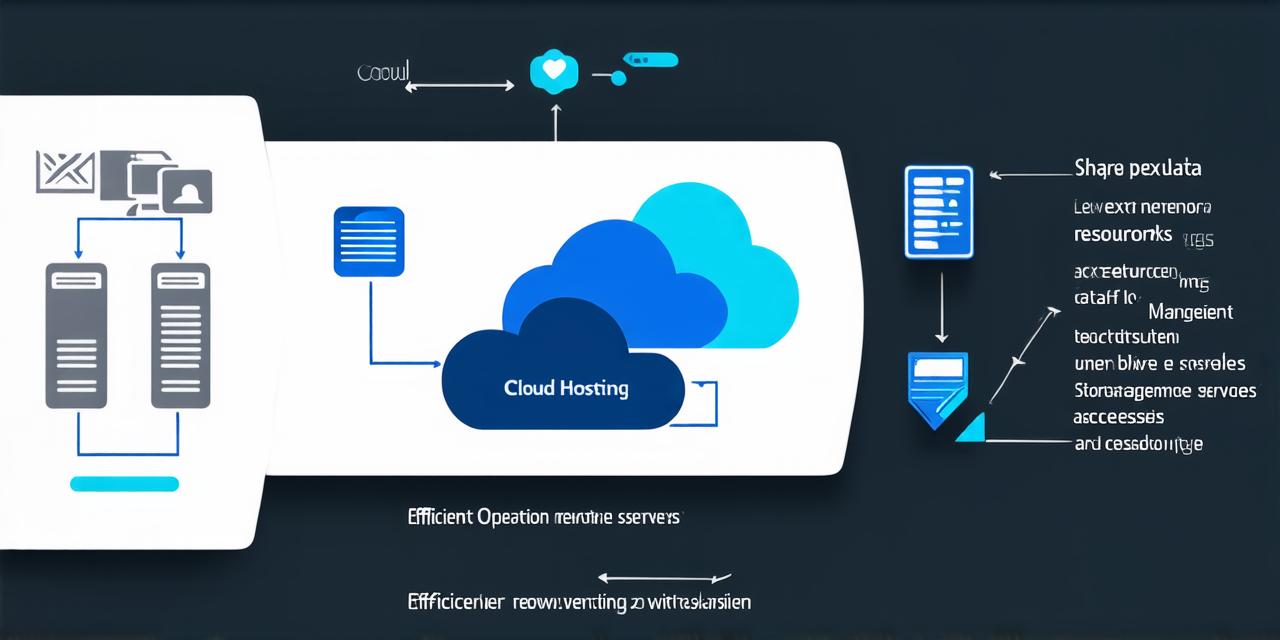Cloud hosting is a popular method of storing and accessing data over the internet, rather than on local servers. It offers many benefits to web developers, including increased scalability, reliability, and security.
What is Cloud Hosting?
Cloud hosting refers to the practice of storing and accessing data on remote servers rather than locally on a computer or server. Instead of owning and maintaining their own physical servers, businesses can use a cloud provider’s infrastructure to store and manage their data. This allows them to access their data from anywhere with an internet connection, without worrying about the physical infrastructure required to run their applications.
How does Cloud Hosting Work?
At its core, cloud hosting is a way of delivering computing resources over the internet. When you sign up for a cloud hosting service, you’re essentially renting space on a remote server from a cloud provider. This space can be used to store files, run applications, and host websites.
The cloud infrastructure consists of servers, storage devices, and other hardware that is used to deliver these resources to customers. The cloud provider manages this infrastructure, including the software that runs on it, so that customers don’t have to worry about the underlying technology.
One of the key benefits of cloud hosting is its scalability. With traditional web hosting, you’re limited by the capacity of your server. If your website experiences a sudden surge in traffic, your server may become slow or crash, leading to downtime and lost revenue. In contrast, cloud hosting allows you to quickly and easily scale up or down depending on your needs.
Cloud hosting also provides increased reliability and security. Because the infrastructure is managed by a cloud provider, there’s less chance of downtime due to hardware failures or other technical issues. Additionally, cloud providers typically have multiple layers of security measures in place to protect customer data from hackers and other threats.
Case Studies: How Cloud Hosting has Benefited Web Developers
There are many examples of how cloud hosting has benefited web developers. Here are a few case studies that illustrate the benefits of this technology:
-
A small ecommerce company was struggling to handle the increased traffic during their holiday season. They were experiencing frequent downtime and slow loading times, which was leading to lost sales. By switching to a cloud hosting service, they were able to quickly scale up their infrastructure to handle the increased traffic without any downtime. This allowed them to capture more sales and grow their business.
-
A marketing agency needed to create and host several websites for their clients. They didn’t have the resources or expertise to manage their own servers, so they turned to a cloud hosting service. This allowed them to quickly and easily create and host websites for their clients without having to worry about the underlying technology.
-
A SaaS startup was looking for a reliable and scalable solution for their web application. They didn’t have the resources or expertise to manage their own servers, so they turned to a cloud hosting service. This allowed them to quickly and easily scale up or down depending on their needs, without worrying about the physical infrastructure required to support it.

Comparing Cloud Hosting to Traditional Web Hosting
While traditional web hosting is still commonly used, it has several limitations compared to cloud hosting. Here are a few key differences:
-
Scalability: Traditional web hosting is limited by the capacity of your server. If your website experiences a sudden surge in traffic, your server may become slow or crash, leading to downtime and lost revenue. In contrast, cloud hosting allows you to quickly and easily scale up or down depending on your needs.
-
Reliability: Traditional web hosting is prone to downtime due to hardware failures or other technical issues. This can lead to lost revenue and damage to your brand.



